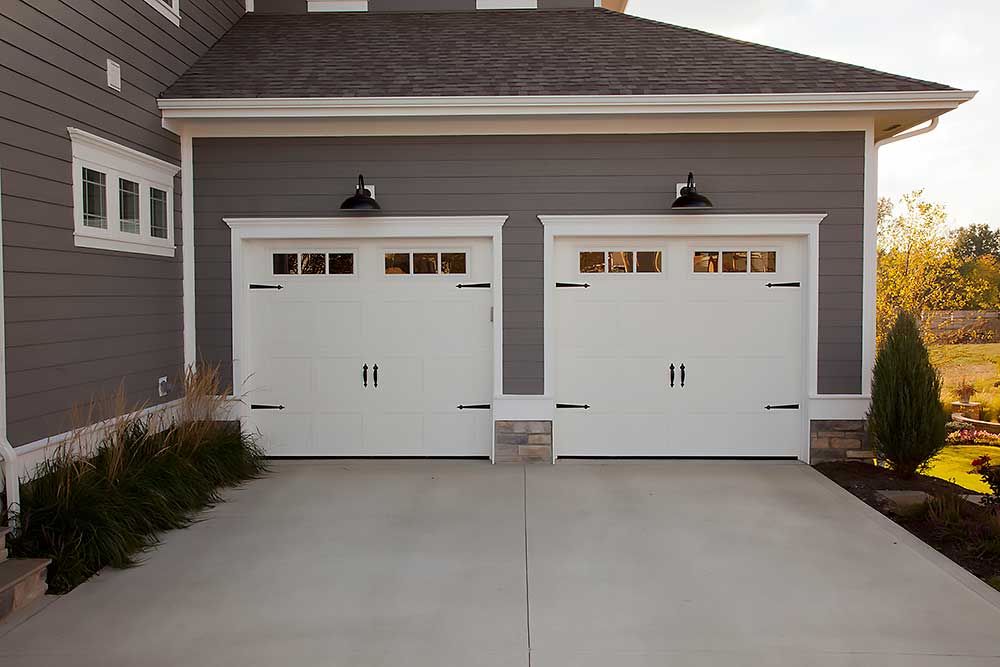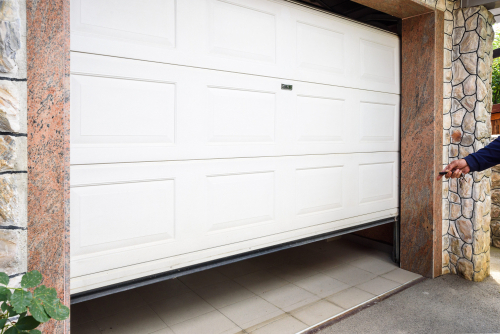
What You Should Know About Garage Door Insulation
When it comes to keeping homes warm and comfortable, most homeowners often focus on insulating walls, floors, and ceilings. However, they tend to overlook one crucial area of the home: the garage. If your garage door isn’t properly insulated, it can cause a significant loss of heat, making your home less energy-efficient and increasing your utility bills.
Fortunately, insulating your garage door is an easy and cost-effective way to address this problem. Garage door insulation can help keep your garage and home warmer in the winter and cooler in the summer, which can ultimately lead to savings on your energy bills.
There are a few different types of garage door insulation available, including batt insulation, reflective insulation, and foam board insulation. Each type has its benefits and drawbacks, so it’s important to choose the right one for your needs and budget.
Batt insulation, for instance, is the most common type of insulation and is made of fiberglass or mineral wool. It’s easy to install and relatively inexpensive, but it may not provide the best insulation value that you are looking for.
Reflective insulation, on the other hand, is made of aluminum foil and works by reflecting heat away from the garage. This type of insulation can be effective in warmer climates, but it may not be as effective in colder climates.
If you are looking for the most effective type of garage door insulation, then foam board garage insulation should be your go-to. It’s made of polystyrene which makes it both lightweight and durable. However, this type of insulation is among the most expensive type of insulation.
Ultimately, regardless of which type of insulation you choose, it’s important to make sure that it’s properly installed to maximize its effectiveness. You may also want to consider hiring a professional in Anaheim garage door repair to installing the insulation to ensure that it’s done correctly.
Advantages of Insulated Garage Doors
First and foremost, an insulated garage door can help regulate the temperature inside your garage. This is particularly important if you use your garage as a workspace or storage area. With an insulated door, you can keep the space cooler in the summer and warmer in the winter, making it more comfortable to work in. Additionally, an insulated door can help prevent drafts and reduce energy loss, which can save you money on your heating and cooling bills.
Another advantage of insulated garage doors is that they can help reduce noise. If you live on a busy street or near a noisy neighbor, an insulated door can help keep out unwanted sounds. This is especially important if you have a living space adjacent to your garage, such as a bedroom or home office.
Insulated garage doors are also more durable than non-insulated doors. The added insulation helps to reinforce the door and prevent it from warping or bending over time. This can help extend the life of your garage door, saving you money in the long run.
Finally, insulated garage doors can increase the overall value of your home. Many potential buyers will appreciate the added benefits of an insulated door and may be willing to pay more for a home that has one.
All in all, there are many advantages to having an insulated garage door. From regulating temperature and reducing noise to increased durability and home value, an insulated door is a wise investment for any homeowner.
Consider These Before Any Garage Door Insulation Project
To begin with, you’ll want to make sure that your garage door is in good condition. Insulating a damaged or poorly functioning garage door won’t do much good, as gaps and cracks can still let in unwanted air and noise. Take a close look at your garage door to make sure that it’s free from damage and functioning properly before moving forward with any insulation project.
Another important factor to consider is the type of insulation you’ll be using. There are a variety of different materials that can be used to insulate a garage door, each with its pros and cons. Take some time to research the different options and decide which one will work best for your specific needs.
You’ll also want to make sure that you have all the necessary tools and materials before beginning your project. Depending on the type of insulation you’re using, you may need items like a utility knife, measuring tape, and a staple gun. Take stock of what you already have and make a list of anything you’ll need to purchase or borrow before getting started.
Finally, before beginning your insulation project, it’s also a good idea to clean your garage door thoroughly. This will ensure that the insulation adheres properly and will help prevent any issues down the line. Use a mild detergent and warm water to clean the surface of the door, and let it dry completely before moving on to the insulation.
How to Take Care of Your Insulated Garage Door
When it comes to taking care of an insulated garage door in Orange County, there are a few things to keep in mind that can help you prolong its lifespan and ensure that it continues to function properly.
To start, make sure the door is properly lubricated. This can help prevent rust and ensure smooth operation. Check the hinges, rollers, and springs for any signs of damage or wear, and replace them if necessary. Also, keep the track clean and free of debris.
Another key component to maintaining your insulated garage door is to ensure that the weatherstripping is in good condition. This can help prevent drafts and keep the garage temperature regulated. If you notice any cracks or damage to the weatherstripping, replace it as soon as possible.
In addition, it’s important to keep the door clean. Dirt and debris can accumulate on the door and its components over time, which can cause damage and make it difficult to operate. Use mild soap and water to clean the door and avoid using harsh chemicals that can damage the surface.
Lastly, if you notice any issues with your garage door or if it’s not functioning properly, it’s important to address the problem right away. Ignoring problems can lead to more damage and potentially costly repairs down the road. Instead, consult with a professional garage door technician to diagnose and fix the issue.










